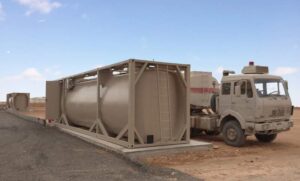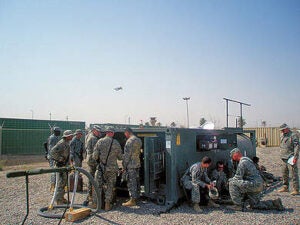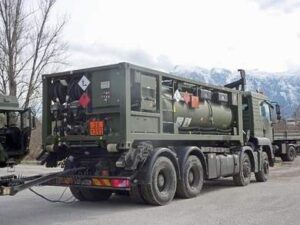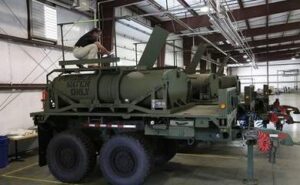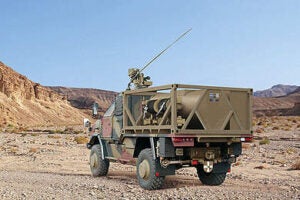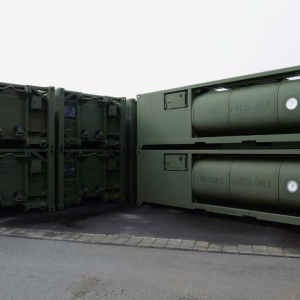The Road To Mots– How Commonality Is In Everybody’s Interest To Deliver Interoperability
Speaking at the Defence Logistics Conference, which will be held in London from 26 to 28 March 2012, Peter Hughes, business development manager for WEW, the fuel and water solutions company, will call for commonality and interoperability in fuel and water systems to be adopted.
Military load-handling systems have proved that platform commonality and interoperability are very clear wins. After load delivery it is in everyone’s interests to ensure that the supply of fuel and water, those most basic of war-fighting requirements, is readily available to all involved, no matter what the platform or whose army is the service provider. This is especially the case with today’s largely coalition operations.
Whilse most soldiers adopt the attitude of necessity being the mother of invention, it is very often the case that those involved in fuel and water logistics frequently find themselves challenged by the ‘user interfaces’, or points of delivery and especially maintenance. WEW, well known for its PLS and camp infrastructure fuel and water systems, has delivered many solutions to numerous different armies around the world. Almost all the units delivered currently have subtly differing specific requirements and modes of operation, which could lead to potential difficulty in forward operating areas.
"Adopting a common and proven MOTS solution gives warfighters several key advantages," advises Peter Hughes of WEW. "First, but not least, it greatly simplifies the pre-acquisition and evaluation process. When a MOTS solution is chosen, there may be no need to carry out country-specific exhaustive tests for example.
"Militaries can benefit from commonality of operator and maintenance training, synergies achievable through common documentary platforms and common ILS.
"The pay-backs don’t end there. The adoption of common approaches means that a ‘capability’ can even be contracted in only as the occasion arises. Which is better? A product that may sit idle for years, or a capability in-sourced only when needed?"
The main thrust of Peter’s presentation at Defence Logistics Europe this year will be to discuss many of these issues when it comes to the supply of the basic fuel and water capability for expeditionary operations.
Whilst it is understood that today’s largely asymmetric warfare requires innovative and advanced solutions for the war-fighter, maybe the logistics chain could be greatly simplified through adoption of a harmonised approach in this basic area.
Peter Hughes will be speaking at 14:40 on Wednesday 28th March. The event is taking place at 76 Portland Place, London W1B 1NT.


